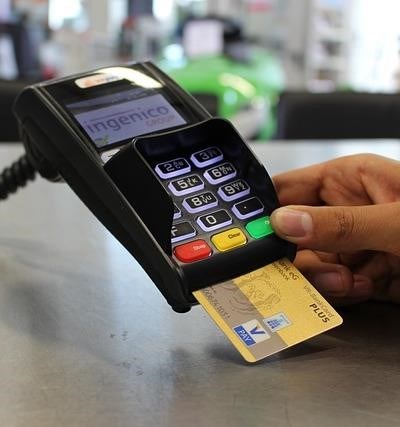HQ CVV stores, found often on the dark web, are illegal marketplaces where stolen data, specifically cardholder data, is bought and sold. This fuels a significant amount of credit card fraud and other financial crime.
Understanding the Threat
These stores are a key component of the criminal network involved in carding. They offer access to compromised cards details obtained through data breaches, phishing, and other cybercrime tactics. The illicit activity facilitated by these stores leads to substantial financial loss for individuals, businesses, and the payment card industry.
The Cycle of Fraud
The process typically involves:
- Data Breach: Sensitive information is stolen through security vulnerabilities.
- Sale on the Dark Web: The stolen data is offered on an illegal marketplace.
- Purchase of CVV Data: Criminals buy the data for online fraud.
- Fraudulent Transactions: Compromised accounts are used, leading to financial loss and potential identity theft.
Prevention and Protection
Protecting yourself and your business requires a multi-faceted approach to fraud prevention and data security.
- Monitor Accounts: Regularly check for suspicious activity.
- Strong Passwords: Use unique, complex passwords.
- Data Security Measures: Implement robust data security protocols.
- Report Suspicious Activity: Alert your bank and law enforcement immediately.
Staying vigilant is crucial in combating this form of cybercrime.
Staying Safe in a Digital World
The proliferation of HQ CVV stores underscores the need for heightened awareness and proactive measures to combat credit card fraud. Remember, the dark web thrives on anonymity and the ease with which stolen data can be traded. This fuels the criminal network involved in carding and other forms of financial crime. Understanding the risks associated with cybercrime is the first step towards protecting yourself.
What You Can Do
Here’s how to minimize your risk and protect against the devastating consequences of identity theft and financial loss:
- Be Wary of Phishing Attempts: Never click on suspicious links or provide personal information in response to unsolicited emails or phone calls. Scammers often exploit security vulnerabilities to gain access to your sensitive data.
- Secure Your Online Accounts: Enable two-factor authentication (2FA) wherever possible. This adds an extra layer of data security, making it significantly harder for criminals to access your compromised accounts, even if they obtain your password.
- Regularly Update Software: Ensure that your operating systems, browsers, and antivirus software are up to date. Updates often include security patches that address known security vulnerabilities.
- Use Strong, Unique Passwords: Avoid using the same password for multiple accounts. A password manager can help you create and store strong, unique passwords for each of your online accounts.
- Monitor Your Credit Report: Regularly review your credit report for any signs of fraudulent activity. You are entitled to a free credit report from each of the major credit bureaus annually.
- Be Cautious When Shopping Online: Only shop on reputable websites that use secure connections (look for «https» in the URL). Be wary of websites that ask for excessive personal information.
- Report Suspicious Activity Immediately: If you suspect that your card has been compromised or that you have been a victim of online fraud, contact your bank or credit card issuer immediately. They can cancel your card and investigate the fraudulent activity.
For Businesses: Protecting Your Customers and Your Bottom Line
Businesses are prime targets for cybercrime and data breach attempts. Protecting customer cardholder data is not only a legal obligation but also a crucial aspect of maintaining trust and preventing significant financial loss.
- Implement Robust Security Measures: Invest in firewalls, intrusion detection systems, and other security technologies to protect your network from unauthorized access.
- Comply with PCI DSS Standards: Adhere to the Payment Card Industry Data Security Standard (PCI DSS) to ensure that you are handling cardholder data securely.
- Conduct Regular Security Audits: Regularly assess your security posture to identify and address potential security vulnerabilities.
- Train Employees on Security Best Practices: Educate employees about phishing scams, social engineering tactics, and other common cybercrime techniques.
- Implement Data Encryption: Encrypt sensitive data both in transit and at rest to protect it from unauthorized access.
- Monitor for Suspicious Activity: Implement monitoring tools to detect and respond to suspicious activity on your network.
- Develop an Incident Response Plan: Have a plan in place to respond to data breaches and other security incidents.
The Fight Against Illicit Activity
Law enforcement agencies and the payment card industry are working tirelessly to combat the illicit activity associated with illegal marketplaces and the trade of compromised cards. By working together and implementing strong security measures, we can disrupt the criminal network and protect ourselves from the devastating consequences of credit card fraud and financial crime. Remember, vigilance and proactive fraud prevention are key to staying safe in the digital age.


Excellent overview of a serious issue. The breakdown of the fraud cycle is particularly helpful in understanding how these crimes are perpetrated. The advice on strong passwords and data security measures is crucial, especially for businesses. Thank you for providing such clear and actionable information on how to stay safe in a digital world!
A very informative article! It clearly outlines the dangers of HQ CVV stores and the cycle of fraud they enable. The prevention tips are practical and easy to understand. A must-read for anyone concerned about online security and protecting their financial information. I appreciate the emphasis on vigilance and proactive measures.